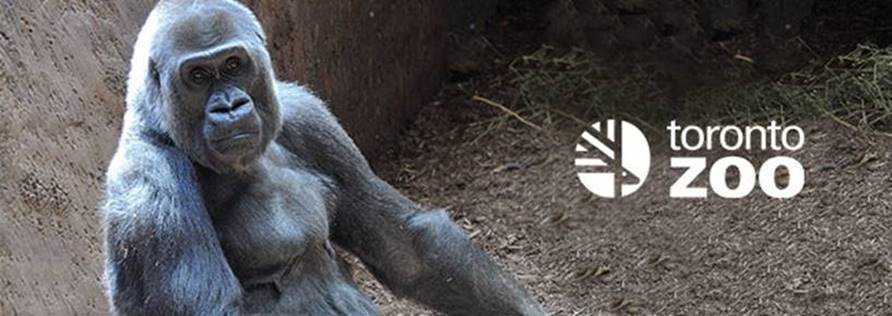
Josephine (Western Lowland Gorilla)
1971 – 2020
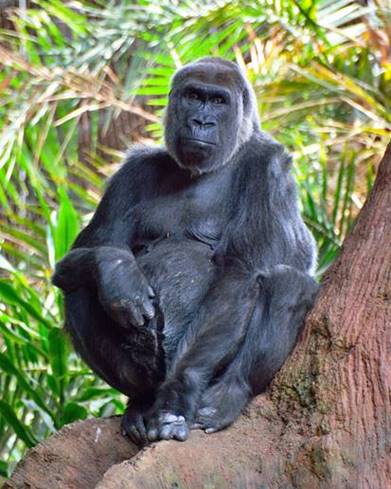
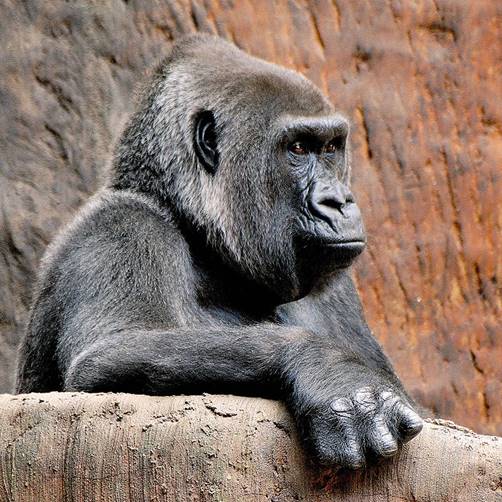
Josephine, Western Lowland Gorilla / Photo Credit: Toronto Zoo
Toronto, ON, Monday, December 7, 2020: It is with heavy hearts we announce that a very special member of our gorilla troop, Josephine, was humanely euthanized on Sunday December 6, 2020. She is one of the few remaining original residents at your Toronto Zoo, and has been a much loved member of her gorilla troop, her Zoo family, and a favourite for many Zoo volunteers, members and guests.
Josephine had begun acting abnormally last Monday, and by Tuesday it was obvious that she was struggling to get around with her neck and shoulders appearing very tense in a very stiff position. She was kept separated from the troop with her daughter Johari in an area to receive care and minimize her need to travel larger distances.
Throughout the week, the Zoo’s veterinary and wildlife care teams have been observing and tending to her, working to keep her comfortable while trying to assess her condition while prescribing various medications and treatments to help ease the pain. As the weekend approached, with the lack of improvement in Josephine’s condition, external veterinary experts were consulted and came in to assist with helping Josephine and further investigate the source of her pain and discomfort.
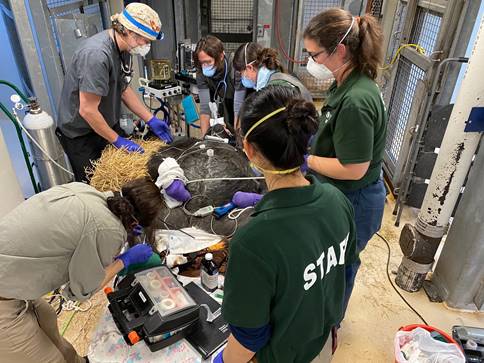
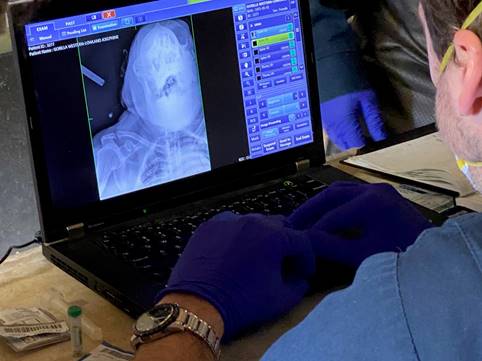
After much testing and thoroughly assessing her state, all treatable conditions in a geriatric gorilla were ruled out, and it was concluded by our team of Toronto Zoo experts and the veterinary specialists that the prognosis was poor. There were no options left to provide her with a comfortable and pain free life, and we made the difficult decision to humanely euthanize her. A post mortem investigation is currently under way to understand more about Josephine’s failing health condition.
We would like to extend deepest thanks, and condolences, to the exceptional Zoo staff who worked tirelessly in the past week to provide love, comfort and highest level of care to Josephine. This loss is felt deeply in our extensive Zoo family which includes our volunteers, members, and guests, and we are grateful for the expertise and compassion shown to her and her whole troop during this difficult time. The gorilla troop was provided opportunity to visit with Josephine’s body and mourn afterwards, which was important to support the gorilla troop dynamic and provide closure as they carry on without her.
Josephine has been an important member of the Zoo's Western lowland gorilla troop. She has given birth to five offspring while at the Toronto Zoo, four of which were sired by Charles, and is now grandmother to five grandchildren at zoos throughout North America. As an accredited member of the Association of Zoos and Aquariums (AZA), the Toronto Zoo is an active member of the Gorilla Species Survival Plan (SSP). The plan focuses on maintaining a genetically and demographically healthy zoo gorilla population and increases awareness and conservation efforts to protect them in the wild. Each year, AZA accredited zoos and aquariums contribute more than $200 million to wildlife conservation.
In order to ensure a future for Western lowland gorillas, our conservation efforts need to be widened. Current trends suggest that all great ape species could become extinct in the wild in the 21st century, and some even within a few decades. Animals like Josephine are incredible ambassadors for their wild counterparts, connecting people to critical conservation issues such as habitat loss due to coltan mining. They also provide opportunities to study and learn about endangered animals, their behaviours, nutrition, reproduction, to support in situ modelling that might be the best chance of ensuring species survival.
Throughout her time at your Toronto Zoo, Josephine has made significant contributions to scientific behavioural research conducted by a number of different researchers from York University, University of Toronto and University of Toronto Scarborough, University of Buffalo, University of Guelph and University of Ontario Institute of Technology.
At 49 years, Josephine was one of the oldest gorillas living in Zoos in North America. According to National Geographic, the average lifespan for a Western lowland gorilla in the wild is 35 years. She was a spunky, sassy, personality, according to her wildlife care keepers, making an impression on all those who met her. She was one of the most vocal gorillas. She would vocalize happily with a low grumble when she was eating a favorite food. She would savour every tiny bit of a treat - one fig could last her 10 minutes, as she would carefully open the fig and pick out each seed and eat it individually. She also did this with almonds as well. The other gorillas just pop them in their mouths but not her. She could get several nibbles out of one almond! She had a bigger than life personality, and made her keepers laugh all the time with her antics. Her legacy lives on in her offspring, one of whom, Johari, still lives here at your Toronto Zoo.
Ways to Honour Josephine
You can donate your used cell phones to your Toronto Zoo’s PhoneApes Program when the Zoo re-opens. Cell phone recycling encourages responsible waste management of electronic materials. The e-waste sector is growing rapidly and the impacts include illegal and irresponsible mining, landfill restrictions and overuse, health problems in developing countries. Recycling of cell phones, and other small electronic devices helps reclaim valuable metals and reduces environmental social impacts.
How does cell phone recycling help conserve Gorillas and their habitats?
Coltan is a metallic ore used to produce the element tantalum. Tantalum, used in a light weight metal powder form, is able to hold a very high electrical charge. This makes it a vital element in creating the capacitors that control electric flow inside miniature circuit boards. Tantalum capacitors are used in almost all cell phones, laptops, pagers and other electronic devices.
Coltan is most concentrated, and therefore most easily mined, in the rainforests of the former Republic of the Congo. Unfortunately, the endangered Lowland Gorilla also calls this spot home. By recycling old cell phones, tantalum can be re-used; lessening the demand to mine pure coltan in the Congo. Money raised from the PhoneApes program goes towards great ape conservation initiatives in the wild.
If you would like to honour Josephine’s life, you can also make a donation to support our gorilla troop in memory of her by going to https://www.wildlifeconservancy.ca/donate, and selecting “Gorilla Fund – Josephine Tribute Gift” in the drop-down menu.
-30-
Media Contact Information:
Katie Gray
Manager of Strategic Communications
[email protected]






For general information visit torontozoo.com
The Toronto Zoo’s mission is to connect people, animals and conservation science to fight extinction and our vision is a world where wildlife and wild spaces thrive.
An iconic tourist attraction and Conservation organization, the Toronto Zoo boasts a number of leading programs for helping wildlife and their natural habitats – from species reintroduction to reproductive research. A world-class educational centre for people of all ages, the Toronto Zoo is open every day except December 25 and attracts approximately 1.2 million guests each year.
Toronto Zoo is accredited by Canada's Accredited Zoos and Aquariums (CAZA) and the Association of Zoos and Aquariums (AZA). The Zoo has also achieved the Canadian Council on Animal Care (CCAC) Certificate of Good Animal Practice® and is inspected by the Ontario Ministry of Agriculture, Food and Rural Affairs (OMAFRA).
To unsubscribe, please send your request to [email protected].
View Toronto Zoo’s Privacy Statement